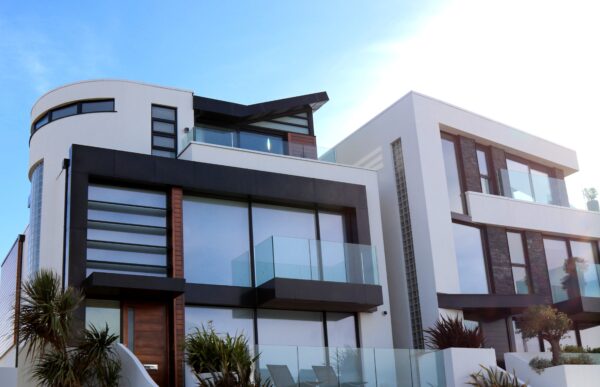By John Gittelsohn
The heated U.S. housing market is soaring to new extremes in California, where buying a home requires sharp elbows — and a lot of money.
Take a two-floor, 2,500-square-foot (232-square-meter) house listed in Berkeley last month for $1.795 million. The property, built in 1935 but extensively renovated, received 28 offers.

It sold to an all-cash buyer for more than $4 million.
While real estate has reached frenzied levels across the country, the most-populous state stands out for the stratospheric prices paid by buyers armed with cash and hungry for deals. It’s a byproduct of California’s perpetual housing shortage, a race to beat higher mortgage rates and an abundance of affluent residents who can afford to muscle in on bids.
Rising borrowing costs are now worsening affordability, pushing ownership even further out of reach for people who don’t have the option of paying cash or tapping into swelling home equity to finance a trade-up.
“Not everybody can absorb the one-two punch of rising prices and interest rates,” said Jordan Levine, chief economist for the California Association of Realtors. “It creates a sense of urgency.”The median price of an existing California single-family home soared 12% in March from a year earlier to a record $849,000, according to the Realtors group. That’s more than twice the U.S. median of $382,000. Almost a third of all homes in the state sold for more than $1 million.
Buyers need to shell out big bucks to compete. More than 70% of homes sold above list price in March, tacking an extra $40,000 to the median price, the Realtors’ data show. Erika Hernandez has made offers on more than 50 houses in northwest Los Angeles over the past 18 months without success. The market is moving away from her. She originally qualified for a $1.2 million purchase, but higher rates cut her maximum to $1.1 million.
“Everyone is $200,000, $300,000 over ask,” said Hernandez, 36, a single mother of two who works as a mortgage loan originator. “It’s crazy.”
She wants to own rather than rent, to build up equity and be able to live near her kids’ school and her family. She’s not giving up.
“People say they want to wait for the crash to buy,” said Anthony Salazar, a Burbank-based real estate agent who represents Hernandez and posts commentaries as @Homedealeranthony on TikTok. “It’s never going to crash.”See also: Hot Housing Market Makes Fed’s Inflation-Fighting Job Even Tougher
Rising mortgage rates are starting show signs of slowing the market, with the number of listings nudging up year-over-year in March for the first time since the pandemic, said Levine. Demand may inevitably hit a wall as buyers are further squeezed. And Mark Kiesel, a Pacific Investment Management Co. bond manager who famously called the peak of the last housing bubble and the crash’s trough, said prices have climbed so far that there’s limited appreciation ahead. He’s now considering selling his Newport Beach house. But California’s housing deficit is so massive that it’s unlikely there will be significant or long-lasting price declines, even in a recession, Levine said. The state needs about 180,000 new units a year but has added only about 100,000 annually, he said, compounding a gap widened by regulations, lack of land and sky-high development costs.
Housing is a pressing issue for Governor Gavin Newsom, who has called the cost of living, as well as endemic homelessness, existential threats to the state. The Covid-19 pandemic and remote work have pushed people to move to cheaper locales like Texas and Florida. Elon Musk pointed to the price of housing in the San Francisco Bay area as one of his rationales for moving Tesla Inc.’s headquarters to Austin. See also: LA Mayor Garcetti Blames ‘Housing, Housing and Housing’ for Urban Exodus
Only one in four California households could afford the median-priced home at the end of last year, with an even lower rate among Latino and African-American families. And that was before the surge in mortgage rates. The monthly payment for a median-priced home jumped 28% in March from a year earlier, thanks to the combination of rising prices and borrowing costs, according to the California Realtors.
The housing shortage is the biggest reason the state’s population has stopped growing, said Stuart Gabriel, professor of finance and real estate at the University of California at Los Angeles. That signals a long-term threat to the world’s fifth-largest economy, he said.
“Housing is the critical linchpin,” Gabriel said. “We’ve got fabulous universities. We’ve got great amenities. We’ve got incredible venture capital. We’ve got Hollywood and tech and everything else. We need housing.”
Even as some residents are priced out or move, there’s enough wealth to keep fueling real estate demand. During the pandemic, California’s wealthiest got richer on everything from rising stock portfolios to crypto trading. State senate leaders now expect a record $68 billion budget surplus for next fiscal year, thanks to a surge of taxes collected from high earners.
Bidding wars stretch up and down the state. A South Pasadena bungalow fetched $2.5 million in an all-cash offer, more than doubling the original $1.2 million list price. A new mansion in Santa Barbara sold for $11.9 million — 20% above asking — to a cash buyer just six days after hitting the market. Even a burned-out house in South Los Angeles, a neighborhood notorious for high crime, went for $525,000, 28% more than the offer price.
The competition is driving home seekers further from urban job centers. The past year’s biggest price jumps, according to Zillow Group Inc., were in the cities of Sonora, Santa Cruz and Riverside — where the trade-off for affordable housing is a two-hour drive to the office. In the Bay Area, tech wealth has pushed the median house price above $2 million in San Francisco and San Mateo County. Homes in Silicon Valley’s San Jose region sold for an average 14% above list price last month, the most of any U.S. metro area in records going back to 2012, according to Redfin Corp.Many real estate agents in the region advise sellers to lowball asking prices to generate competition and maximize the final sale, said Patrick Carlisle, chief market analyst for the region at Compass Inc.
“Some agents feel strongly that listing a home at a price that the seller will not accept is unethical,” he said. “Other agents believe egregious underpricing is a legitimate technique to create crazed, frenzied bidding wars.”
The famed mansions for Hollywood’s elite are also trading at lofty levels. The median single-family home price in Los Angeles’s Bel-Air Holmby Hills area jumped to $4.22 million, double the March 2021 price, according to a report by Douglas Elliman Real Estate. In Beverly Hills, prices climbed a comparably modest 22% to a median $9.15 million.
One celebrity transaction shows the extremes: Madonna recently listed a Hidden Hills estate she bought for $19.3 million last year from singer-songwriter the Weeknd. She’s asking $26 million, a 35% markup.
More stories like this are available on bloomberg.com.




